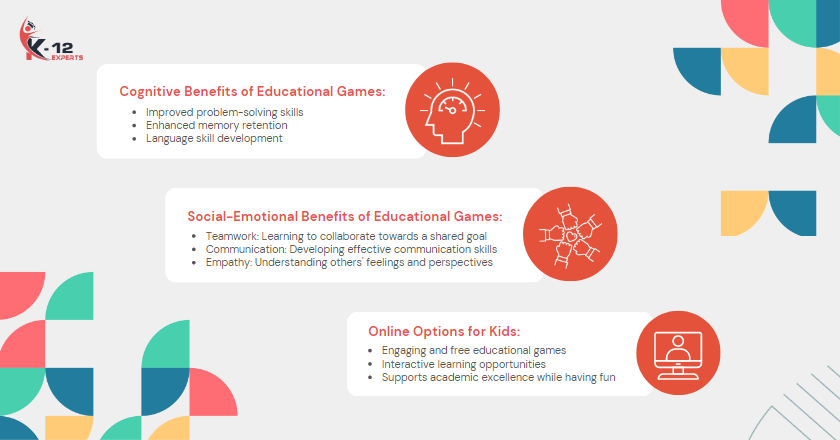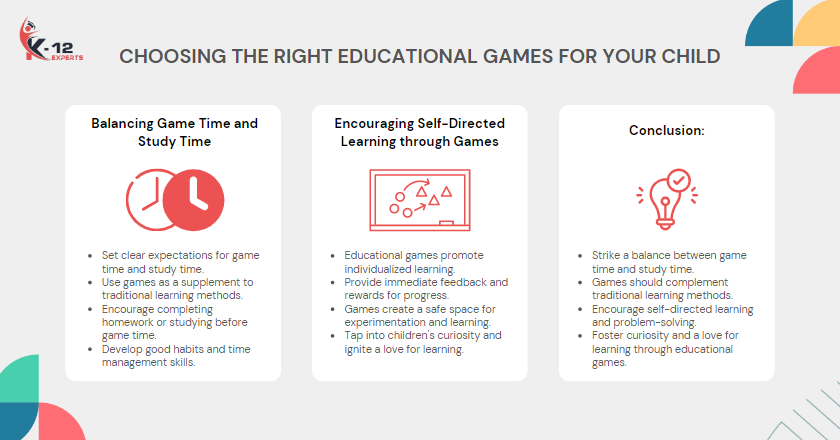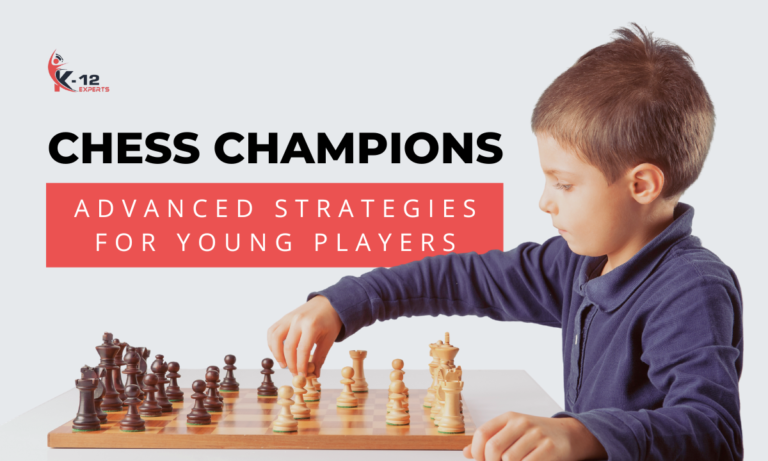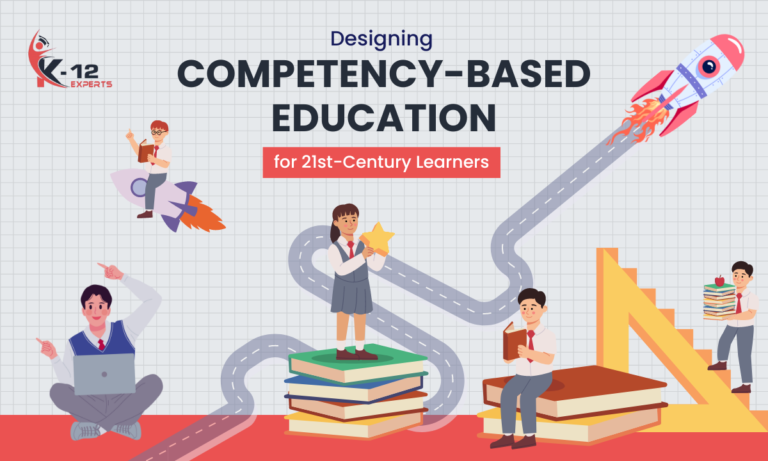Do you remember playing games as a child? The thrill of winning and the sense of accomplishment that came with it was unlike anything else. Now imagine if those same games were designed to enhance your learning outcomes. That’s exactly what educational games do, and they’re becoming increasingly popular among parents and educators alike.
Research shows that educational games can have a significant impact on children’s learning outcomes. In fact, a study by the University of Bristol found that students who played educational games scored up to 20% higher in their exams compared to those who didn’t.
With such impressive results, it’s no wonder more and more parents are turning to online educational games as a way to supplement their child’s education. But with so many options out there, how do you choose the right game for your child? And how can you incorporate these games into daily learning to maximize their benefits?
In this article, we’ll explore some popular online options for kids and provide tips on how to make the most out of educational gaming for your child’s development.
Key Takeaways
- Educational games can enhance learning outcomes for children by improving problem-solving skills and promoting social-emotional development.
- Online options for educational games are available for kids of all ages, with math-based and language arts games being popular choices.
- Age-appropriate games ensure children can understand and engage with the material presented, and aligning games with specific learning goals reinforces concepts.
- Educational games should supplement traditional learning methods, not replace them, and balancing game time and study time is important.
The Impact of Educational Games on Learning

Not only do these games provide cognitive benefits such as improved problem-solving skills, but they also promote social-emotional development by fostering teamwork and communication.
With online options available for kids of all ages, educational games greatly enhance learning outcomes while keeping children entertained.
Cognitive Benefits of Educational Games
You can enhance your child’s cognitive abilities through educational games, paving the way for their bright future like a beacon in the darkness.
Online educational games are a fantastic way to keep your children engaged while they learn and develop important skills. These games offer an innovative and creative approach to education that incorporates theories and practices to ensure an optimal learning experience.
Online games for kids’ educational purposes are not only fun but also free! They provide interactive learning opportunities that cater to different age groups and skill levels, from preschoolers to teenagers.
Games such as puzzles, memory matching, and spelling challenges help children develop problem-solving skills, improve memory retention, and enhance language skills. Playing these engaging online educational games for kids can help your child achieve academic excellence while having fun doing it.
Social-Emotional Benefits of Educational Games
Parents can witness their child’s emotional growth and development by playing interactive games encouraging teamwork, communication, and empathy. These social-emotional benefits of educational games are just as important as the cognitive benefits. Engaging in collaborative play teaches children how to work together towards a common goal, communicate effectively with others, and understand different perspectives.
To better understand the social-emotional benefits of educational games, consider the following table:
| Social-Emotional Benefit | Description |
| Teamwork | Learning to collaborate with others towards a shared goal. |
| Communication | Developing effective communication skills by expressing thoughts and ideas clearly. |
| Empathy | Understanding other people’s feelings and perspectives by putting oneself in another person’s shoes. |
Through these social-emotional benefits, educational games have the power to enhance a child’s overall development beyond just academic achievement. With this in mind, it is no wonder that more and more parents are turning to online educational games for kids to support their child’s learning journey.
Popular Online Educational Games for Kids
Are you looking for educational games that can help your child improve their math and language skills? Look no further than the world of online games!
Math-based games like Math Playground and Prodigy offer engaging challenges that reinforce addition, subtraction, multiplication, and division concepts.
For language arts, try out classics such as Word Mover and Grammar Ninja to build vocabulary and grammar knowledge in a fun way.
Math-Based Games

If you’re looking for a fun way to improve your math skills, try playing some online math-based games! These games are designed to help children understand mathematical concepts interactively and engagingly.
Here are three examples of math-based games that can be found online:
- Math Blaster: This game is perfect for children who love outer space adventures, and it involves solving math problems while flying through space and battling aliens.
- Prodigy: In this game, children create their own wizard characters and solve math problems to progress through the levels. The game adapts to the child’s skill level, providing more challenging problems as they improve.
- Sumdog: This game allows children to compete against each other while answering math questions. It covers a wide range of topics from addition and subtraction to fractions and algebra.
These games make learning fun and provide immediate feedback and reward systems that keep children motivated. Playing these games regularly can help improve mathematical fluency and problem-solving skills.
As important as mathematics is, language arts is equally essential in building a solid academic foundation for kids. Transitioning into language arts games, various online options can enhance reading comprehension, vocabulary development, and spelling accuracy, among others, without sacrificing fun or engagement.
Language Arts Games

Don’t miss out on the fantastic world of language arts games that will take your reading and writing skills to new heights! These interactive games use educational theories and practices to make learning fun and engaging. With innovative designs and creative challenges, they can improve your grammar, vocabulary, spelling, comprehension, and creativity.
To give you an idea of what’s available online for kids, here’s a table with four examples of language arts games:
| Game Name | Description | Age Range | Learning Outcomes |
| Grammar Gorillas | Help the gorillas identify different parts of speech in a sentence. | 2nd-6th grade | Identify nouns, verbs, adjectives, articles, conjunctions. |
| Story Starters | Spin the wheel to generate random story prompts and start writing! | 3rd-8th grade | Develop ideas for plot, character development, setting. |
| Word Frog | Catch flies with words that match a given meaning or part of speech. | K-5th grade | Build vocabulary skills by identifying synonyms/antonyms/homophones. |
| Spellbound | Unscramble letters to create as many words as possible within a time limit. | 2nd-12th grade | Practice spelling rules/patterns while increasing speed/accuracy. |
These are just a few examples – there are many more options out there that cater to different ages and levels of proficiency. By choosing the right educational games for your child based on their interests and needs, you can enhance their learning outcomes in language arts while providing a safe and enjoyable online experience.
Choosing the Right Educational Games for Your Child

When choosing educational games for your child, it’s important to consider age-appropriateness and aligning the games with specific learning goals.
Age-appropriate games ensure that your child can understand and engage with the material presented in the game, while aligning games with learning goals helps to reinforce concepts they are already learning.
By selecting educational games that are innovative and creative in their approach to enhancing learning outcomes, you can help foster a love of learning in your child that will last a lifetime.
Age-Appropriate Games
You’ll want to find age-appropriate games that will engage and challenge your child’s learning. This means considering the content of the game, as well as the difficulty level and cognitive demands.
For younger children, simple matching or puzzle games can help with pattern recognition and problem-solving skills. Games involving more complex decision-making or strategy can help develop critical thinking abilities as they age.
Remembering that just because a game is labeled as educational doesn’t necessarily mean it’s appropriate for your child’s age and learning level. Review different options and read reviews from other parents or educators to ensure you’re selecting a game that aligns with your child’s interests and abilities.
By choosing age-appropriate games, you’ll be setting your child up for success in their learning journey! Speaking of which, let’s now explore how to align these games with specific learning goals.
Aligning Games with Learning Goals
If you want your child to excel in a specific subject, consider incorporating games that align with their learning goals – it’s like hitting two birds with one stone! By doing so, not only will they have fun playing the game, but they will also be reinforcing the skills and knowledge needed for success in that subject.
Here are some tips on how to align educational games with learning goals:
- Identify the specific skills or concepts your child needs to work on and find games that target those areas. For example, if your child struggles with multiplication tables, look for games that focus on practicing multiplication facts.
- Ensure the game provides an appropriate challenge level – not too easy or difficult. The goal is to engage your child in a productive struggle where they can learn from mistakes and improve over time.
- Choose games that incorporate feedback and rewards system, as these motivate children to continue playing and improving their performance.
- Finally, ensure that the game is aligned with age-appropriate content standards.
By following these guidelines, you can help your child achieve academic success while also having fun playing educational games..
Incorporating Educational Games into Daily Learning

When it comes to incorporating educational games into daily learning, it’s important to strike a balance between game time and study time.
While games can effectively boost engagement and reinforce concepts, they shouldn’t overshadow the importance of traditional studying methods.
Encouraging self-directed learning through games can also help children take ownership of their education and develop critical thinking skills in a fun and interactive way.
Balancing Game Time and Study Time
Finding the right balance between game time and study time can be tricky, but it’s easier than you might think. The key is understanding that educational games aren’t replacing traditional learning methods. Instead, they should be used as a supplement to reinforce and enhance what your child is already learning.
To strike a balance between game time and study time, start by setting clear expectations with your child. Let them know how much time they’re allowed to spend playing games each day, and make sure they understand that this time is in addition to their regular study routine. Encourage them to use educational games as a reward for completing their homework or studying for an upcoming test.
By doing so, you’ll help instill good habits that will serve them well throughout their academic career.
As you work on balancing game time and study time, keep in mind the ultimate goal of using educational games: encouraging self-directed learning through engagement and fun activities.
Encouraging Self-Directed Learning through Games
Encouraging kids to take the reins of their education through engaging and entertaining games is like giving them a roadmap to success. Educational games can help children develop self-directed learning skills that will stay with them for life. Here are four ways that educational games can encourage self-directed learning:
- Games allow children to learn at their own pace without feeling rushed or bored.
- They provide immediate feedback and rewards, so children can see their progress in real-time.
- Games offer a safe space for experimentation and trial-and-error learning, which helps build confidence.
- They also tap into children’s natural curiosity and desire to explore new things, making learning more enjoyable.
By incorporating these elements into educational games, developers can create experiences that entertain and empower kids to take control of their education. With the right tools and support, every child has the potential to become a successful lifelong learner.
Conclusion
In conclusion, encouraging self-directed learning through educational games effectively promotes academic success while keeping kids engaged and motivated. Games can help build essential skills such as problem-solving, critical thinking, creativity, and collaboration by providing a safe space for experimentation and allowing children to learn at their own pace. As parents and educators strive to prepare students for the challenges of tomorrow’s world, it’s important not just to focus on what they’re learning but also how they’re learning it – with fun-filled activities that foster independence and curiosity in equal measure.
Frequently Asked Questions
How can parents monitor their child’s progress when using educational games?
To monitor your child’s progress when using educational games, check if the game offers a progress report or feedback feature. Observe your child’s engagement and ask questions about what they learned. Keep an open dialogue with their teacher to track their academic growth.
Are there any safety concerns with children playing educational games online?
“Ensuring a safe online experience for children playing educational games is crucial. Although rare, potential risks include exposure to inappropriate content and interaction with strangers. Proper supervision and parental controls can minimize these concerns.” ‘It is important for parents and educators to educate children on internet safety and provide them with the necessary tools to protect themselves while online.’
Can educational games be used as a substitute for traditional classroom learning?
Yes, educational games can supplement traditional classroom learning by providing interactive and engaging experiences that reinforce concepts. However, they should not replace face-to-face instruction entirely as social interaction and hands-on activities are crucial for holistic development.
Do educational games cater to different learning styles?
Did you know that educational games can cater to different learning styles? Games can be designed to suit visual, auditory and kinesthetic learners. This innovative approach enhances learning outcomes, making it an engaging option for safe learning.
Is there a recommended amount of time that children should spend playing educational games?
You should limit your child’s educational game time to 30-60 minutes per day, depending on their age and attention span. Too much screen time can lead to decreased academic performance and health problems. Encourage a variety of activities for a well-rounded education.




